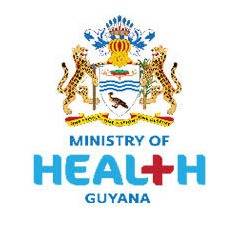- Home
- Get Trained
- Gatekeepers Training
In this comprehensive five-module Gatekeeper suicide prevention training, Gatekeepers will acquire crucial knowledge and practical skills to address complex issues related to suicidal behaviour within the specific cultural and social context of Guyana. Here is an integrated overview of what Gatekeepers will learn:
In the first module, Understanding Suicidal Behaviour in Guyana, Gatekeepers will explore the complex landscape of suicide rates in Guyana and its sociocultural underpinnings. With the help of key facts and figures about suicidal behaviour, they will become informed about trends and learn to identify key factors that contribute to suicidal behaviour within their communities. This module sets the stage for Gatekeepers to understand their pivotal role in prevention efforts.
In the second module, Suicide & Psychological Disorders, participants will explore the intersection of suicide risk with major psychological disorders. They will learn to recognize the signs that may indicate an increased risk of suicide in individuals suffering from conditions such as mood disorders, emotional dysregulation, psychosis, and substance abuse, and will be equipped with strategies for timely intervention and support.
After setting the stage, the third module guides participants through a 5-step Suicide Risk Assessment and Safety Planning process. This assessment process equips Gatekeepers with a structured, evidence-based approach to assessing suicide risk, including identifying key risk and protective factors and warning signs, evaluating the seriousness of suicidal ideation and planning, and crafting an actionable safety plan. Hands-on role plays will reinforce the development of these assessment skills in real-world situations.
Module 4 considers the mental health and well-being and Self-Care of Gatekeepers as they navigate the complex emotions and responsibilities inherent in suicide prevention. It provides five broad strategies for self-care: breathe work for stress reduction, breathe work for entering, loving kindness, meditation, gratitude, simple every day actions and journalling. Each strategy contributes to Gatekeepers’ well-being, resilience and continued capacity to provide compassionate support. Gatekeepers can incorporate these strategies into their daily lives, and also before, during or after their interactions with people in crisis.
The final module examines Suicide postvention and prevention strategies to aid families and communities after a suicide, emphasizing the role of Gatekeepers in both postvention and broader community prevention efforts. It addresses the impact of stigma on suicide highlights the critical role of media in shaping public perceptions about mental health and provides guidance on responsible reporting to further enhance community and national suicide prevention initiatives.
Upon completion, Gatekeepers will have a holistic understanding of suicide prevention, from individual crisis intervention to community-wide strategies, with a strong emphasis on cultural sensitivity, self-care, and responsible communication.
COURSE FEATURES
Curriculum
- 7 Sections
- 55 Lessons
- Lifetime
- Module 1: Understanding Suicidal Behaviour: Guynese Context11
- 1.1Introduction & Orientation
- 1.2Suicide Prevention Training in Guyana
- 1.3Learning Outcomes
- 1.4Guyana’s Suicide Crisis
- 1.5What are key facts and figures regarding suicide in Guyana
- 1.6What Causes Suicide in Guyana?
- 1.7What Makes Indo-Guyanese Males Most Vulnerable?
- 1.8Preventing Suicide through Gatekeeper Training
- 1.9Activity 1
- 1.10Summary
- 1.11Quiz for Module 120 Minutes5 Questions
- Module 2: Suicide & Psychological Disorders12
- 2.1Learning Outcomes
- 2.2What is Mental Health, and How Does it Relate to Suicidal Behaviour?
- 2.3Why is it Important to Understand Psychological Disorders?
- 2.4What are the Categories of Major Psychological Disorders?
- 2.5Which Psychological Disorders are the Most Related to Suicidal Behaviour?
- 2.6Suicide & Depression
- 2.7Suicide & Borderline Personality Disorder (BPD) and Emotional Dysregulation
- 2.8Suicide & Psychosis
- 2.9Suicide & Substance Abuse Disorders
- 2.10Activity 2
- 2.11Summary
- 2.12Quiz for Module 220 Minutes5 Questions
- Module 3: A 5-Step Model of Suicidal Risk Assessment & Safety Planning10
- 3.1Learning Outcomes
- 3.2Step 1: Establishing A Trusting & Respectful Relationship
- 3.3Step 2: Evaluate Risk & Protective Factors
- 3.4Step 3: Identify Warning Signs
- 3.5Step 4: Assess Suicidal Ideation & Plan
- 3.6Step 5: Develop a Safety Plan and Implement
- 3.7Suicide Behaviour Screening Tools
- 3.8Activity 3
- 3.9Summary
- 3.10Quiz for Module 315 Minutes5 Questions
- Module 4: Self-Care for Gatekeepers9
- 4.1Learning Outcomes
- 4.2Why is Self-Care Important?
- 4.3Self-Care Activity 1: Stretch & Relax
- 4.4Self-Care Activity 2: Centering Breath
- 4.5Self-Care Activity 3: Lovingkindness Meditation
- 4.6Self-Care Activity 4: Neck-Down Experiences
- 4.7Self-Care Activity 5: Gratitude Journal
- 4.8Summary
- 4.9Quiz for Module 430 Minutes5 Questions
- Module 5: SUICIDE POSTVENTION AND PREVENTION12
- 5.1Learning Outcomes
- 5.2Postvention for Families & Communities
- 5.3Postvention for Gatekeepers
- 5.4Stigma and Suicide
- 5.5Forms of Stigma
- 5.6Stigma, Suicide & Gender
- 5.7Stigma, Suicide & Culture
- 5.8Stigma’s Impact on Help-Seeking Behaviour
- 5.9Recommendations to Prevent Suicide
- 5.10Activity 5
- 5.11Summary
- 5.12Quiz for Module 520 Minutes5 Questions
- Course Completion1
- Appendices5
About the Course Certificate
This training/manual focuses on the prevention of suicide at any age, the skills and concepts taught in this workshop are easy to learn. Participants are not expected to be an "expert" at the conclusion of the program, nor will they expected to present themselves as one.
Our Partners
This project is funded by the Government of Canada, through Global Affaris Canada (GAC) and the International Development and Relief Foundation (IDRF)




